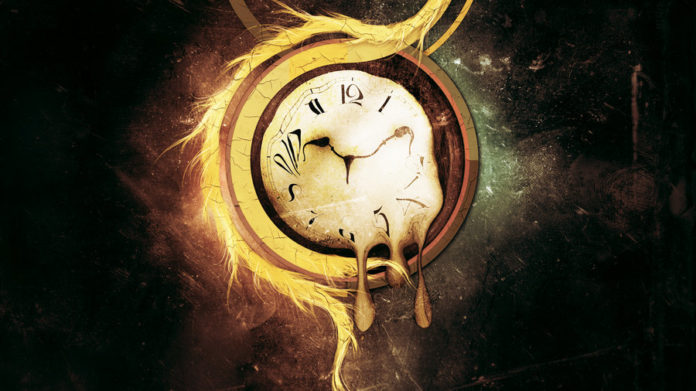
As anyone who has ever experienced even a fleeting existential second understands, time is relative. Or, rather, the understanding of time is relative. My minute isn’t your minute, though we are still quantitatively traveling according to exactly the same fundamental clock. Time drags and time flies, yet it consistently arrives on program. Strange, eh?
Understanding of time is not some philosophical triviality. As we could likely expect, it is implicated in mental health. So a fresh meta-study finding that melancholy affects time understanding–slows it drastically, on average–is, perhaps, not all that astonishing. It is a cruel fact (on average) that the more the world sucks, the slower it goes.
The newest study comes courtesy of psychiatrists Sven Thones and Daniel Oberfeld-Twistel, of Johannes Gutenberg University, who have released their findings in the Journal of Affective Disorders. Taking 16 private studies, analyzing 433 miserable subjects and 485 non-depressed, control subjects, they found that while depressive people report the understanding of time going slowly (or not at all!), they were generally just as skillful as non-depressive people at ‘judgments of time intervals.’ So, the differentiation is qualitative vs. quantitative, as we might anticipate.
The quantitative part of time-telling is, within the length of the 16 assessed studies, examined in four main ways:
First, there’s the verbal time estimate, which is where issues are essentially only given a start as well as a stop time and then having the subject say how long the period was. Second and third, subjects are requested to copy/create specified time intervals (e.g. take a specified 10 seconds (either as “10 seconds”, or as in the first evaluation, where an real period is presented)) and attempt to say where such a period might stop and start, typically by pressing buttons. Finally, there’s ‘duration discrimination,’ which is exactly what it sounds like: a topic is given two time intervals and the subject is requested to distinguish between them both.
For the most part, depressed subjects could manage these jobs as well as the non-depressed subjects. The ‘qualitative’ time encounters, however, were distinct.
“On visual analogue scales, the issues [subjects] are requested to indicate a point on a line where the endpoints signify an extremely slow and very fast subjective flow of time,” Oberfeld-Twistel and Thones describe within their report. “Notably, these evaluations differ from [time estimate] jobs since the subjective flow of time is evaluated rather compared to the understanding or creation of defined time intervals.” What they found was, across the 16 studies, ‘medium effects’ of melancholy on time perception. So the subjects had ‘distinct clocks,’ in a sense.
“In terms of the model, the observation that depressive patients often report to perceive time as going by less fast could be described with a more rapid working clock in depressive patients than in non-depressive managements,” the report notes.
So, just imagine being in a single room using a clock going a bit quickly and after an hour has passed, according to that particular clock, you go into another room using a standard clock. That standard clock may have shown less time having elapsed then the primary clock. A relativity, of sorts.
More than anything, Oberfeld-Twistel and Thones’ investigation reveals enormous differences in our present understanding of mental illness and time perception. Now, how do antidepressants effect this understanding? How is time perceived in bipolar patients? Does it speed up during manic episodes? How about schizophrenia? These remain unanswered and open questions.
“Our review also reveals that several facets haven’t yet been investigated in adequate detail in the circumstance of time understanding in melancholy and may be dealt with by future research,” the shrinks added. “These facets range from the function of the dopaminergic neurotransmitter system, effects of distinct subtypes of depression, possible effects of stimulus modality, and special job-associated features like prospective versus retrospective time estimate.” Time will tell.


![time_1080[1]](http://anonhq.com/wp-content/uploads/2015/03/time_10801-300x169.jpg)


